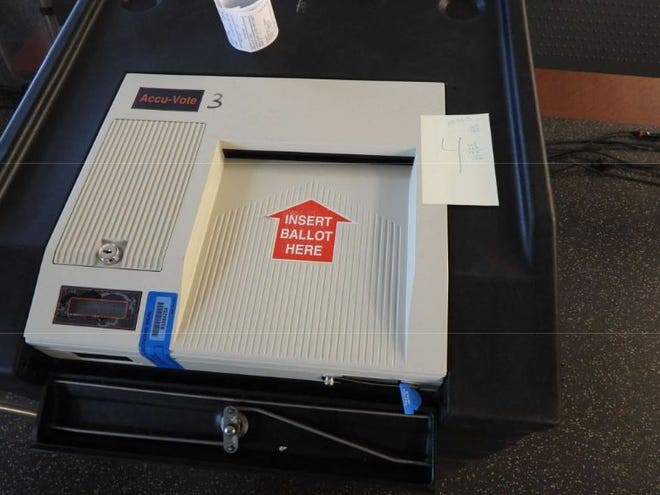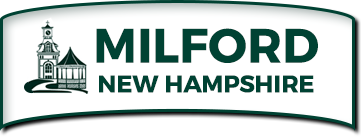The information contained in this article is not intended as legal advice and may no longer be accurate due to changes in the law. Consult NHMA's legal services or your municipal attorney.
Automobiles and vote-counting machines have one thing in common. They are critical pieces of equipment that need more care and attention as they age. And yet, while few of us drive 30-year-old cars on essential trips, many of us rely on 30-year-old technology to count votes.
Cars built before the turn of the century do not have the same features as new cars do. Older cars operate less efficiently and have fewer safety features than new cars. That’s why parents don’t let their newly licensed children drive old beaters - an inexperienced teenager driving a car with mechanical issues could spell disaster.
New Hampshire cities and towns began using AccuVote ballot counting devices (tabulators) in 1990, the manufacturer stopped making the tabulators in 2007. The fact that any AccuVotes are even running today is a tribute to the resourcefulness and security practices of the few companies nationwide, such as LHS Associates (Salem NH), that maintain them.
Sure, AccuVote tabulators are serviceable, and technicians cannibalize mechanical parts and salvage ballot readers from other machines.
But there are two significant potential issues with Accu-Vote tabulators. First, their software has not been updated in more than a decade. Fortunately, the onboard firmware, physically burned onto EPROM memory chips, does not fail. However, the chips are 1980s technology, so their contact leads are old and batteries may fail.
Second, the software that enables the tabulator to read the ballots and timing marks is based on Windows XP technology. In other words, the software to layout and print the machine-
readable marks relies on Windows operating software that Microsoft abandoned seven years ago, with a limited commercial extension.
Think about that.
Back to the auto analogy, you could be driving a 30-year-old car, and that may meet your needs. You may live near downtown with its retailers, medical facilities, and other essential services. If the car breaks down, you walk to get whatever you need. Similarly, some communities may think, “Well, if the AccuVote machine doesn’t work, then we will just count ballots by hand.” But what if you live on the outskirts of town? What if walking a few miles is not an option?
With upwards of 15,000 voters at their polling places, Milford and other large towns cannot practically count ballots by hand. Present election law stipulates the counting begin immediately after the polls close “and shall not be adjourned nor postponed until it shall have been completed.” Imagine asking volunteers to return to the polls at 8:30 p.m., after the polls close, to spend the night counting thousands of ballots with multiple races and warrant articles! And requiring clerks and moderators, who have been at the polls since 5:30 a.m., to manage the overnight
hand-counting process.
The 2022 midterm elections will generate significant voter interest. And you will agree that, regardless of the nominees, the 2024 presidential primary and general election could be just a contentious as the 2020 election was. New Hampshire must get the counts right.
As town moderator, I strive to ensure Milford’s elections are safe, secure, and trustworthy. I am not alone, nor would I want to be! Our town clerk, select board, supervisors of the checklist, and other election workers are a team focused on those three critical capabilities.
Safety includes the physical polling place and the health and well-being of everyone who works there or passes through. Security means implementing the election processes that the state has honed over many decades, ensuring voter confidentiality, and enabling an audit trail to resolve anomalies that may crop up. Trustworthiness is all about voter confidence that their ballot was counted, counted once, and included in an accurate tally of the election results.

Are the AccuVotes up to their role in safe, secure, and trustworthy elections? Yes, they are. LHS keeps Milford’s machines well-maintained. The Secretary of State’s (SOS) personnel and LHS still design ballot layouts and then program the AccuVotes to read ballots.
But for how long? Through 2022 local and state elections? The 2023 local elections? The 2024 Presidential Primary? The 2024 local, state, and national elections? For polling places with hundreds or thousands of voters? Will a debacle such as the 2020 Iowa caucus counts happen here if some of the AccuVote machines fail catastrophically?
While capabilities vary by vendor, today’s vote-counting technology goes well beyond reading and tallying filled in ovals. Tabulators capture and store an image of both sides of each ballot, and they read the voters’ selections and add them accordingly. If enabled, the machine will alert the voter to under and over-votes. Two people can count write-ins by looking at a monitor instead of flipping through stacks of ballots. Programming can be done once for standard and handicap-accessible tabulators manufactured by the same vendor. Most importantly, the paper ballot remains the source document and is available for manual review and counting at any time.
The four major tabulator companies in the US are Clear Ballot Group, Dominion Voting Systems, Election Systems & Software, and Hart Inter-Civic. The selection of one or more tabulators involves an assessment of their hardware, software and security capabilities, the details of which are too extensive for me to cover in this article. Among the evaluation criteria are a focus on voter- and election worker usability, as well as safety, security, and trustworthiness:
Safety
• The device must be easy to transport, move, and lift.
• The design must enable access by people with disabilities to insert their ballots and for election officials to troubleshoot the tabulator.
• The bins holding cast ballots must be deep enough to hold several hundred ballots.
Security
• The tabulator must not have Bluetooth, wireless, or internet connectivity.
• The tabulator must have advanced security features, such as requiring both a physical key and unique password for election officials to use.
• The device incorporates digital storage of ballot images and vote counts, including how the tabulator interpreted the votes, on encrypted memory cards.
Trustworthiness
• The tabulator separates write-in ballots from the rest of the ballots.
• The monitor used by election officials and voters is small enough to ensure confidentiality and large enough for clarity.
• The slot into which voters place their ballots and the tabulator’s security features are visible to election officials.
• The programming for reading ballots can be copied to an accessible tabulator without being recreated.
Other Criteria
• The machine must handle folded ballots without jamming.
• Folded ballots must lie flat in the storage bin.
• The price must be competitive with other manufacturers’ devices.
• Service contracts must be available and competitively priced.
• Rapid on-site and phone service must be available.
Again, additional requirements go into the selection of a vote-counting machine.
Given the AccuVote machines’ age, we must have a secure and trustworthy alternative before the February 2024 Presidential primary election.
New Hampshire election law leaves tabulating machine selection to the town or city. Those communities must select a machine approved by the Ballot Law Commission (BLC).
In September Milford's five-member Board of Selectmen unanimously voted to ask the BLC to approve Dominion's ImageCast Precinct tabulator (sold by LHS) last fall. The Commission
approved the request in December, meaning the devices will be used in Milford's elections beginning in March 2022.
I drive a 1996 BMW during the warm months. An experienced mechanic and I maintain the car, and I take it to high-performance driving schools held at NH Motor Speedway and elsewhere. For now, my antique car performs well, but not nearly as well as the late model sports cars do. I must decide whether to continue maintaining it or invest in another vehicle.
With the BLC's approval, the state has taken an important step to ensure the integrity of our elections does not relyon outdated AccuVote technology.

Peter Basiliere is the moderator in the Town of Milford, New Hampshire.